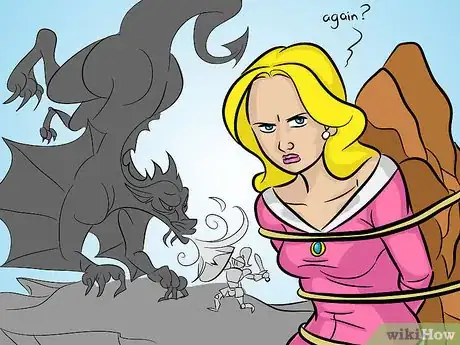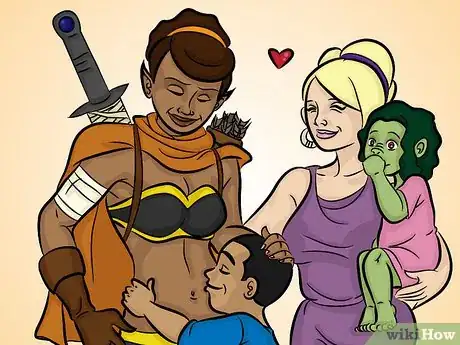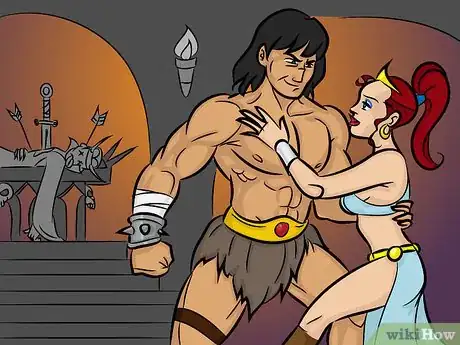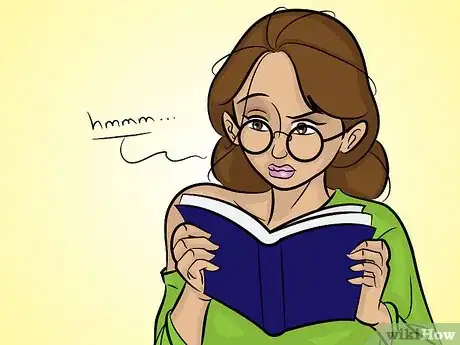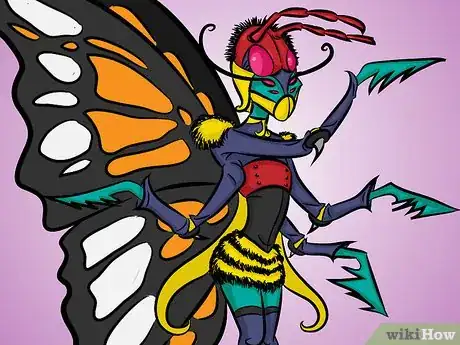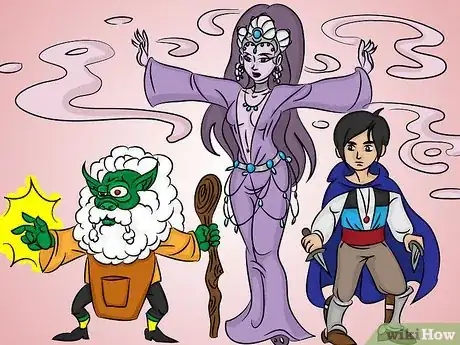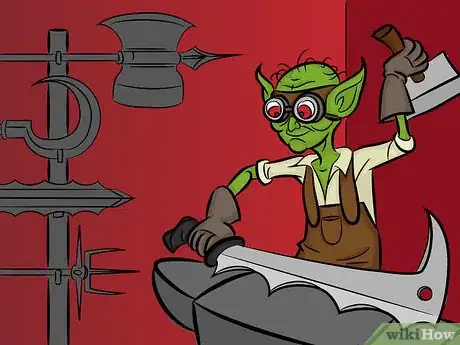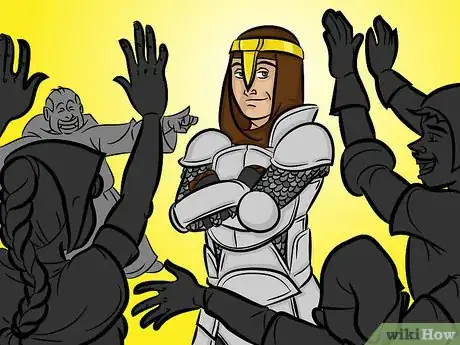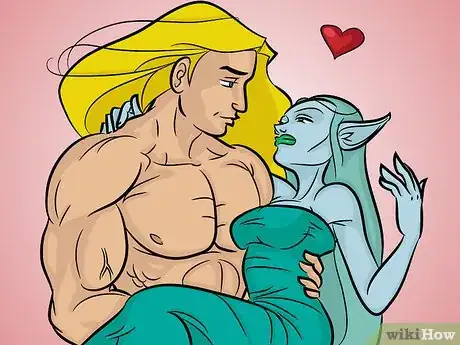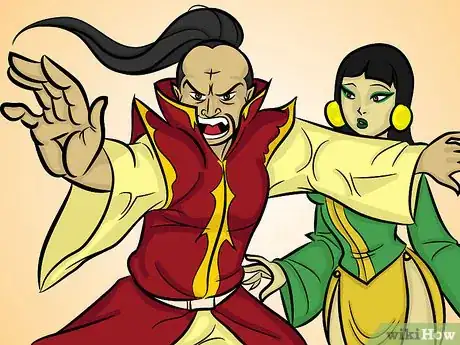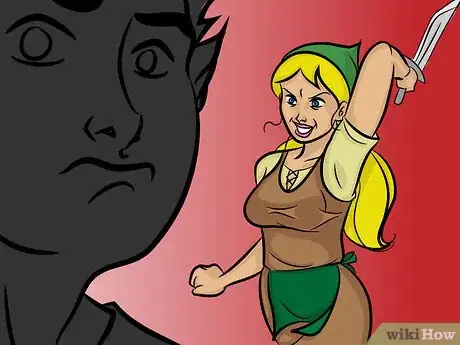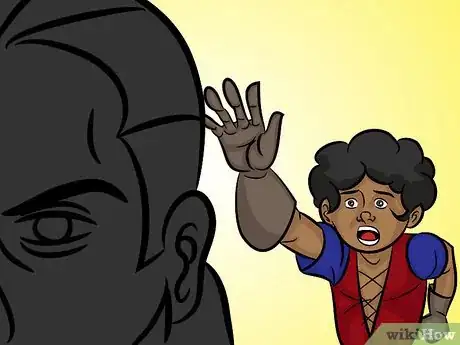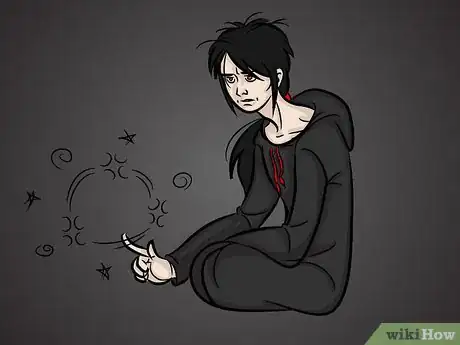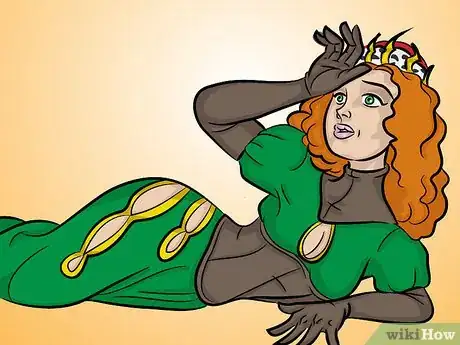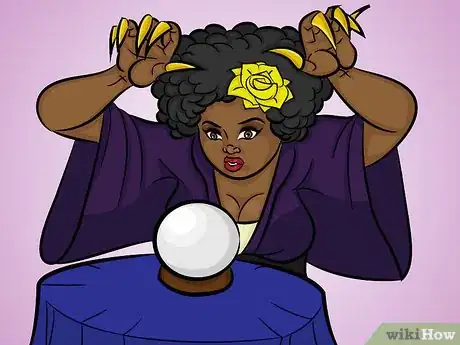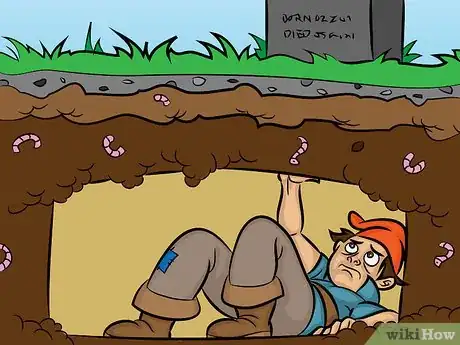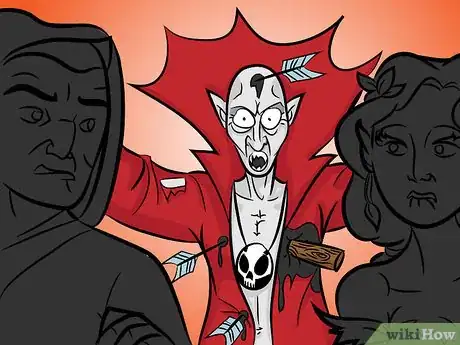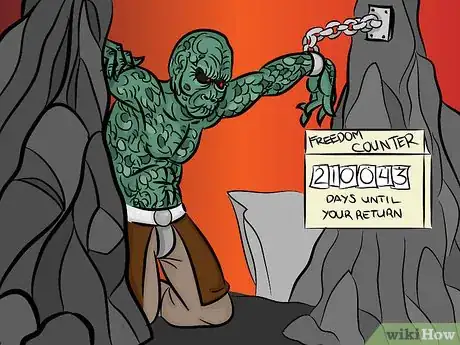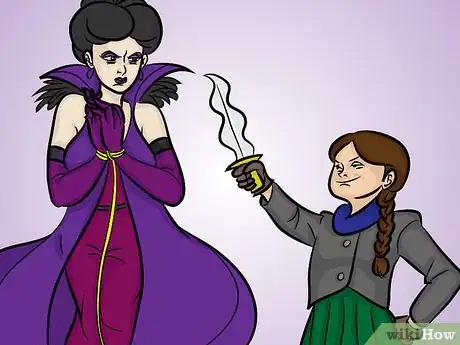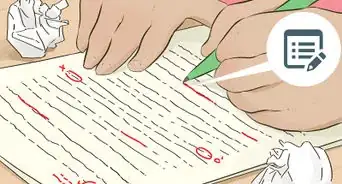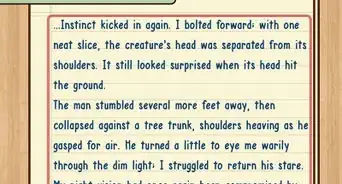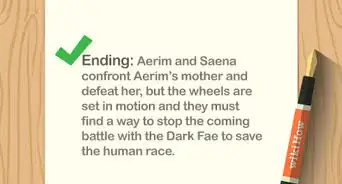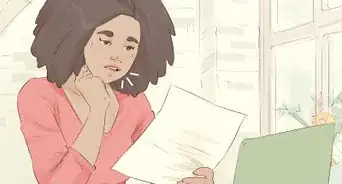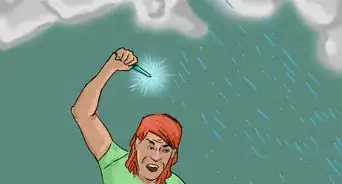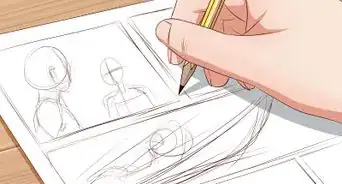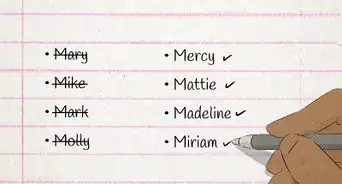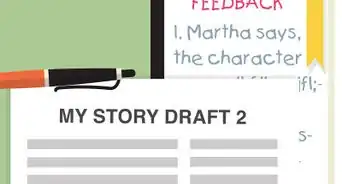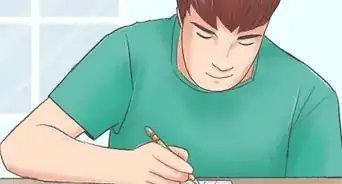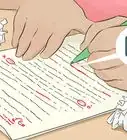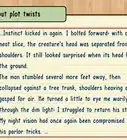This article was co-authored by Lydia Stevens. Lydia Stevens is the author of the Hellfire Series and the Ginger Davenport Escapades. She is a Developmental Editor and Writing Coach through her company "Creative Content Critiquing and Consulting." She also co-hosts a writing podcast on the craft of writing called "The REDink Writers." With over ten years of experience, she specializes in writing fantasy fiction, paranormal fiction, memoirs, and inspirational novels. Lydia holds a BA and MA in Creative Writing and English from Southern New Hampshire University.
wikiHow marks an article as reader-approved once it receives enough positive feedback. In this case, 98% of readers who voted found the article helpful, earning it our reader-approved status.
This article has been viewed 162,508 times.
You are eager to begin writing, but you don't want your story to be boring and predictable. You want to write something fresh, intriguing, compelling. This article will describe some common fantasy clichés and how to avoid them.
Steps
-
1Avoid clichés. Avoiding clichés can be very difficult. Remember, having one or two of the clichés below is perfectly fine especially if they're important to your story and will affect it if you change them. Just try not to have way too many clichés, or no one will want to read your story and you'll eventually forget about it.[1]
-
2Make your main character have a realistic family. As a general "rule", female characters will only have a father and male characters will only have a mother. Try to avoid completely orphaned characters unless it is 100% necessary for their backstory. Try to make things a little bit different. If you do so, your characters will have more interesting backgrounds. Also, the "evil twin" trope is used very often. Try to avoid this.Advertisement
-
3Avoid stereotypical characters. Many female characters will be bossy, rude, know-it-alls; this should be avoided. Another stereotypical female character, typically the main character, is the useless wallflower. Often this type of character will have a perfect, attractive best friend to serve as a foil to them, which doesn't really work. Create likeable, realistic characters that people will like. You should also avoid damsels in distress: You want to create independent yet likable female characters who are good role models and don't have to rely on a guy to save/help them. "Mary Sues" are very annoying: give your characters some flaws and don't make them happy even though their lives are miserable. Try your best with male characters too. Don't make them fall in love with the heroine "at first sight" or be an orphan with a miserable life going to a private school where he is bullied and has no friends until something unexpected happens and he discovers he's a hero. When writing descriptions, avoid using sentences like "the heroine had silky and sparkly onyx hair that bounced perfectly", those can be really annoying to read. Try to make your character as realistic as possible. Give them multifaceted personalities - no real person is only angry, or only nice, etc.[4]
-
4Read. This might seem like the exact opposite of what you should do, but it will teach you what common set-ups to avoid. Make a list of your most disliked cliches if it helps. Also, it can make your brain more creative to come up with things.
-
5Create your own creatures. Fairies, goblins, dwarves, elves in medieval-like worlds are very overused, and so are main boy characters who come from Earth and end up on a fantasy world for no apparent reason. If you are making a story about a normal person ending up in a fantasy world, try to make it more realistic. Don't just make him/her "just appear there" or "fall through a portal".
-
6Make your characters have varied ages. Most fantasy characters are around 11-16 years old. It's okay to make them young teens, but try to make supporting characters who have different ages.
-
7Design your own weapon. Swords, guns, and rods are common in fantasy. Designing your own weapons should be fun and different.
-
8Avoid "the chosen one". Once again, you want realistic, exciting, and three-dimensional characters. The more interesting your characters are, the more they will be liked. "The chosen one" can make a story boring because you know that only one hero will save the world from evil and nothing else change it.[5]
-
9Avoid sappy and drama-filled romance. If you're going to include romance, there are some things you should avoid. Stay away from the male character saving the heroine and doing anything for her after only knowing her for five seconds. Make it cute and realistic. The two characters who are in love should get to know each other before anything happens and they shouldn't fall in love just because you wanted them to. For example, you can't have them arguing nonstop for three chapters and then just make them kiss out of nowhere because you wanted your story to have romance. You want it to seem like it's happening in real life, even if it's fantasy, and creating boring and one-dimensional romances will make things worse.
-
10The "villain father" should be avoided.[6]
-
11Villains can look normal too. Most stories have either extremely good looking or bad looking villains. Try to mix things up a little bit.
-
12Little kids are stronger than heroes?. Don't, just don't create an annoying little kid who is always chasing the main characters around, asking to "join their group", challenging them to battles, and beating the main hero in nearly every one of them. Those types of characters will be disliked and will make your story annoying.
-
13The "sad character". There will always be a goth/depressed character who has no friends but learns how to interact with people in the end of the story. Will usually be a guy with dark, long hair and no friends or a 18-year-old girl with a miserable life who is a leader of a group as is trying to act "tough".
-
14Do not have a helpless princess. The "damsel in distress" thing is old. Really old. Thousands of years old. Naturally, it's become a little stale, and progressive types will not appreciate it, either. Damsels in distress are useless, unhelpful, and flat. And they often get on readers' nerves.
-
15Consider having legends just be legends. In fantasy stories, prophecies always come true, and every myth and urban legend is grounded in reality. Just as this is not true of real life, it should not be true of your fantasy world. Let people make up campfire stories about werecats without suddenly being attacked by a werecat.
-
16Avoid having people who seem to die. This is extremely common: a main character, usually the main heroine who the hero is in love with, will appear to be dead but then turn out to be alive but very hurt.
-
17Avoid having villains "play possum." The main villain is finally dead! Oh... never mind. Another death cliché: The main character seems to finally kill the villain/a monster, and when all the characters are happy and celebrating, the villain/monster comes back to life.
-
18Know the "Sealed Evil in a Can" trope. The villain or monster will always be "sealed away" by a hero, then reemerge a hundred or, more often, a thousand years later. A second hero will need to defeat the villain or seal them away again. Often the second hero is a descendent or reincarnation of the first.
-
19Do not write useless adult characters. Many books and shows aimed at kids will include adults who are foolish and/or totally useless, usually as an authority figure or villain. One problem with this is that the writer is limiting their potential audience - flat and shallow older characters are unappealing to adult and teen readers. The other issue is that it makes a villain far less threatening. To be a convincing threat, the villain should have no qualms about harming or killing anyone, even children, and he/she certainly shouldn't get outsmarted by a kid who isn't out of middle school. If older, experienced adults could be outsmarted by kids, they probably would have failed on their own.[7]
- On a related note, you should avoid your kid protagonists instantly coming up with all of the right answers and solutions while the "good" adults, despite being older, more educated, and experienced, always arrive at the wrong conclusions, especially if these adults are in positions of leadership and responsibility where they should not need the help of children (no matter how smart) to solve problems.
Expert Q&A
-
QuestionHow do you get rid of clichés in writing?
 Lydia StevensLydia Stevens is the author of the Hellfire Series and the Ginger Davenport Escapades. She is a Developmental Editor and Writing Coach through her company "Creative Content Critiquing and Consulting." She also co-hosts a writing podcast on the craft of writing called "The REDink Writers." With over ten years of experience, she specializes in writing fantasy fiction, paranormal fiction, memoirs, and inspirational novels. Lydia holds a BA and MA in Creative Writing and English from Southern New Hampshire University.
Lydia StevensLydia Stevens is the author of the Hellfire Series and the Ginger Davenport Escapades. She is a Developmental Editor and Writing Coach through her company "Creative Content Critiquing and Consulting." She also co-hosts a writing podcast on the craft of writing called "The REDink Writers." With over ten years of experience, she specializes in writing fantasy fiction, paranormal fiction, memoirs, and inspirational novels. Lydia holds a BA and MA in Creative Writing and English from Southern New Hampshire University.
Author & Developmental Editor You should focus on somehow repurposing the clichés, because everything, across any genre, has already been done before. This way, even though the audience have seen this 1000 times, they'll realize that you also had another meaning or story behind the cliché.
You should focus on somehow repurposing the clichés, because everything, across any genre, has already been done before. This way, even though the audience have seen this 1000 times, they'll realize that you also had another meaning or story behind the cliché. -
QuestionHow can one avoid using clichés?
 Lydia StevensLydia Stevens is the author of the Hellfire Series and the Ginger Davenport Escapades. She is a Developmental Editor and Writing Coach through her company "Creative Content Critiquing and Consulting." She also co-hosts a writing podcast on the craft of writing called "The REDink Writers." With over ten years of experience, she specializes in writing fantasy fiction, paranormal fiction, memoirs, and inspirational novels. Lydia holds a BA and MA in Creative Writing and English from Southern New Hampshire University.
Lydia StevensLydia Stevens is the author of the Hellfire Series and the Ginger Davenport Escapades. She is a Developmental Editor and Writing Coach through her company "Creative Content Critiquing and Consulting." She also co-hosts a writing podcast on the craft of writing called "The REDink Writers." With over ten years of experience, she specializes in writing fantasy fiction, paranormal fiction, memoirs, and inspirational novels. Lydia holds a BA and MA in Creative Writing and English from Southern New Hampshire University.
Author & Developmental Editor Don't avoid them, but make them your own. That's how people who are being traditionally published deal with things like that. They're taking what we've all seen before and making it it unique in how they've incorporated it into their own story.
Don't avoid them, but make them your own. That's how people who are being traditionally published deal with things like that. They're taking what we've all seen before and making it it unique in how they've incorporated it into their own story. -
QuestionWhat should I do if I found a cliche but it cannot be change?
 Community AnswerYou don't absolutely have to avoid all cliches. A few is okay, just don't let it be overwhelming. Maybe try changing it a little. For example, a damsel in distress - if you make her aware of her situation, and she thinks it's for the best (like Daisy in the Great Gatsby), it can really follow the cliche, yet add depth to the character. Remember, cliches aren't inherently bad.
Community AnswerYou don't absolutely have to avoid all cliches. A few is okay, just don't let it be overwhelming. Maybe try changing it a little. For example, a damsel in distress - if you make her aware of her situation, and she thinks it's for the best (like Daisy in the Great Gatsby), it can really follow the cliche, yet add depth to the character. Remember, cliches aren't inherently bad.
References
- ↑ https://kingdompen.org/five-overused-cliches-about-family-in-writing-and-how-to-avoid-them/
- ↑ Lydia Stevens. Author & Developmental Editor. Expert Interview. 1 September 2021.
- ↑ Lydia Stevens. Author & Developmental Editor. Expert Interview. 1 September 2021.
- ↑ https://jerichowriters.com/how-to-write-characters-not-cliches/
- ↑ https://nybookeditors.com/2018/06/5-writing-cliches-to-avoid/
- ↑ https://jerichowriters.com/how-to-write-characters-not-cliches/
- ↑ https://jerichowriters.com/how-to-write-characters-not-cliches/
